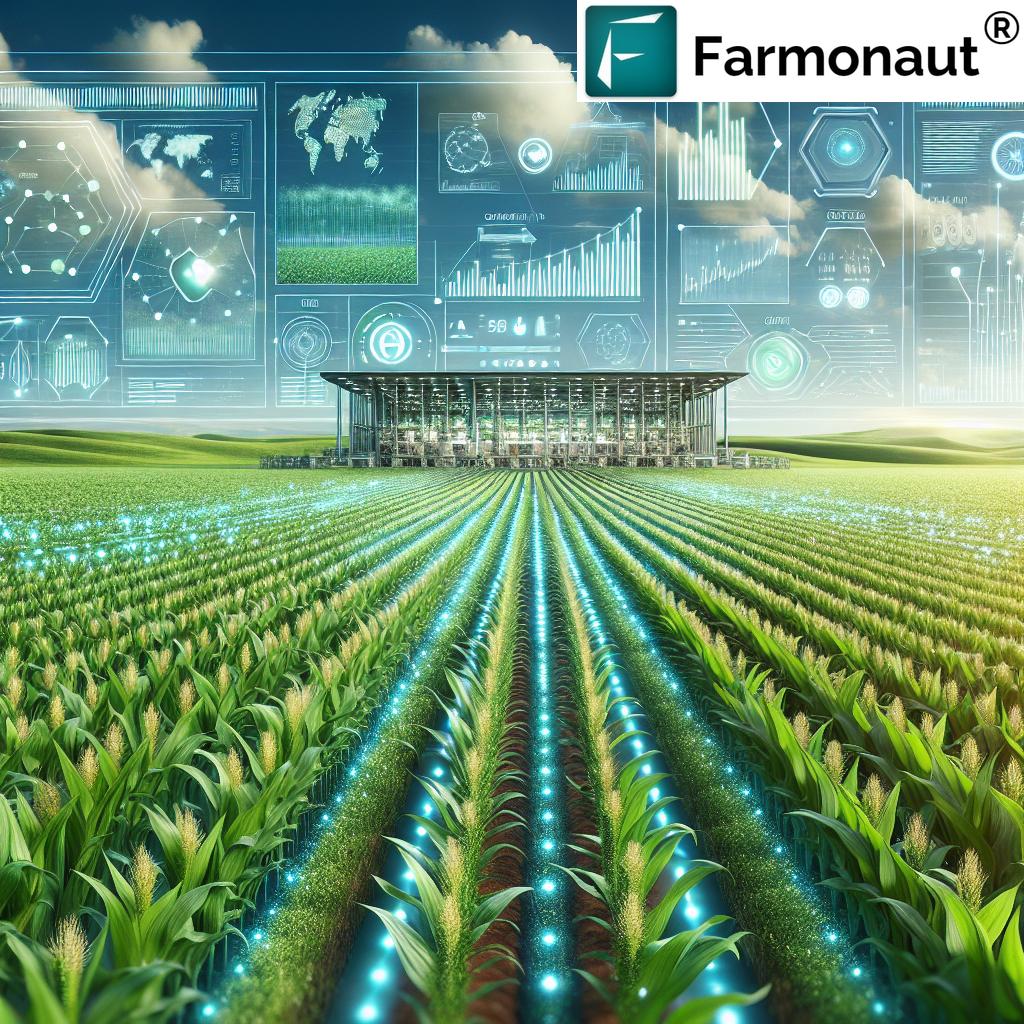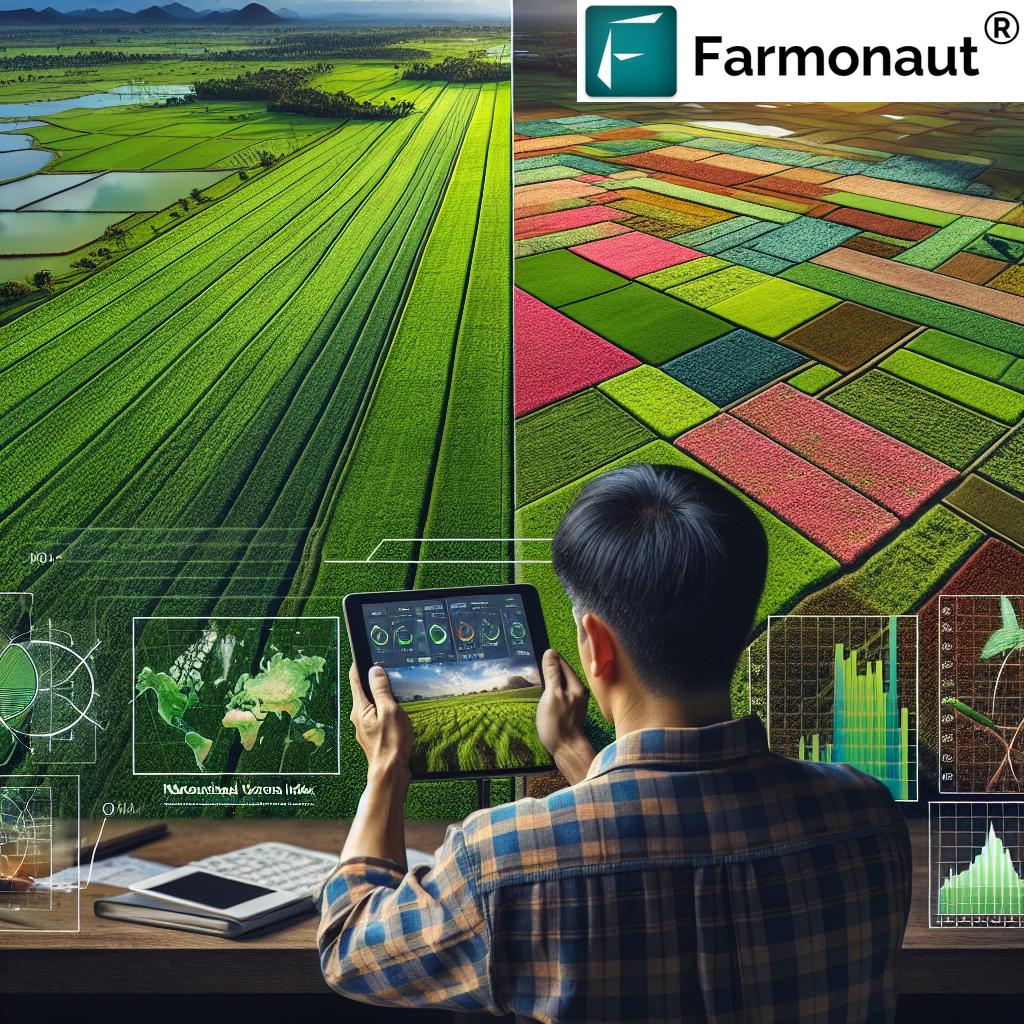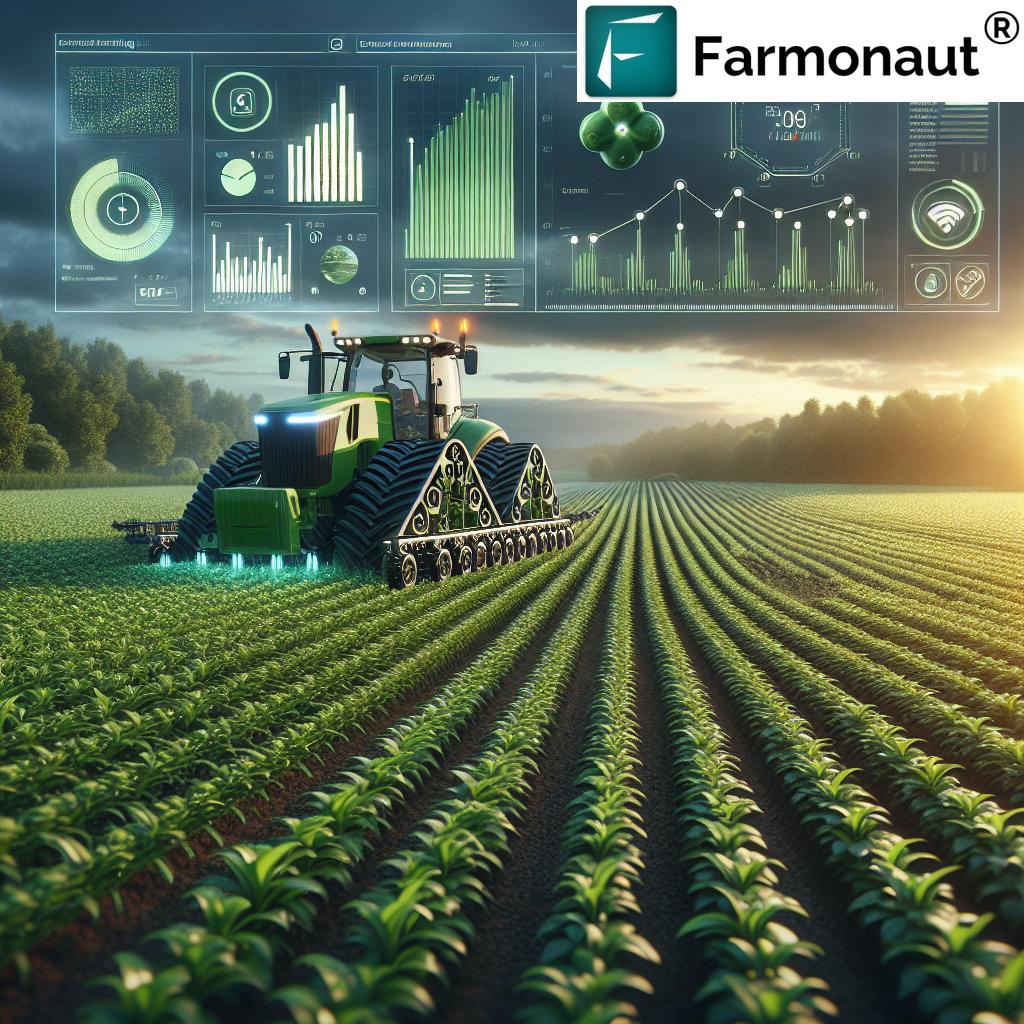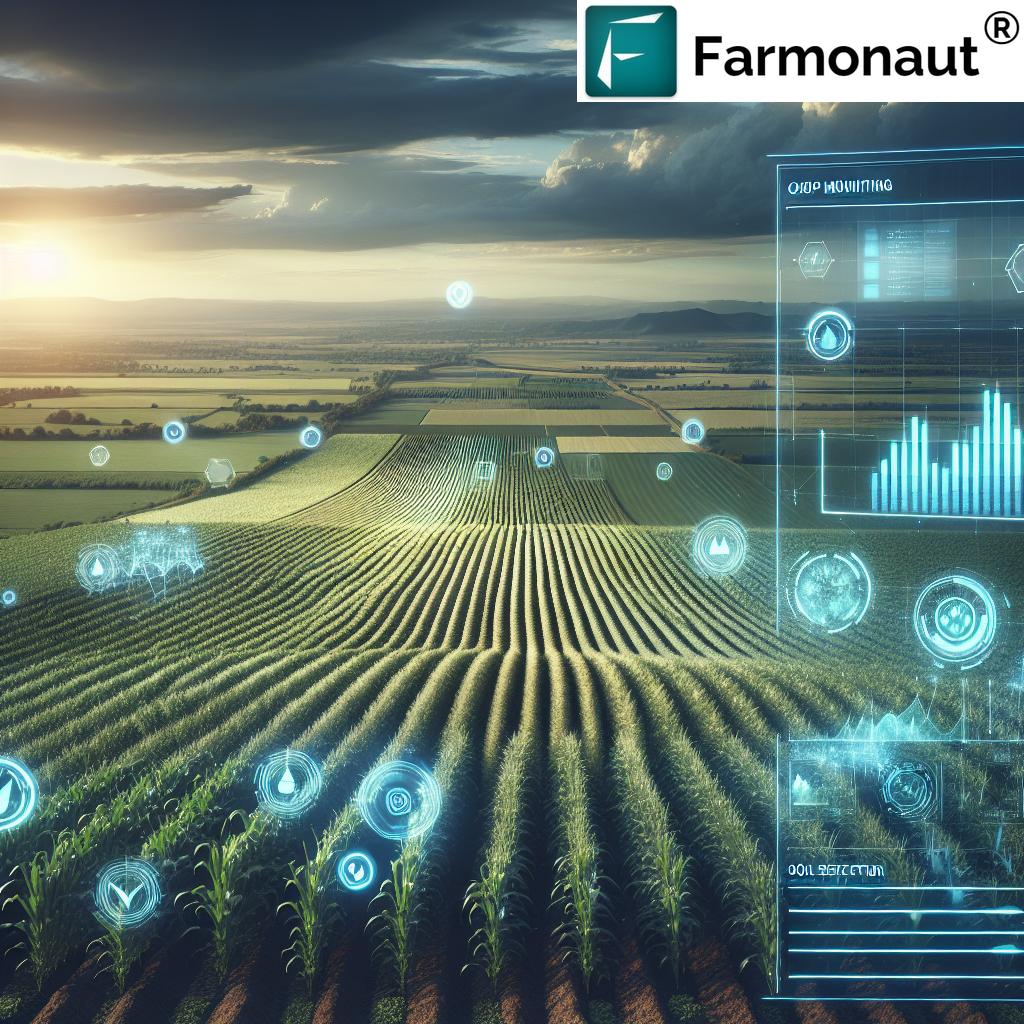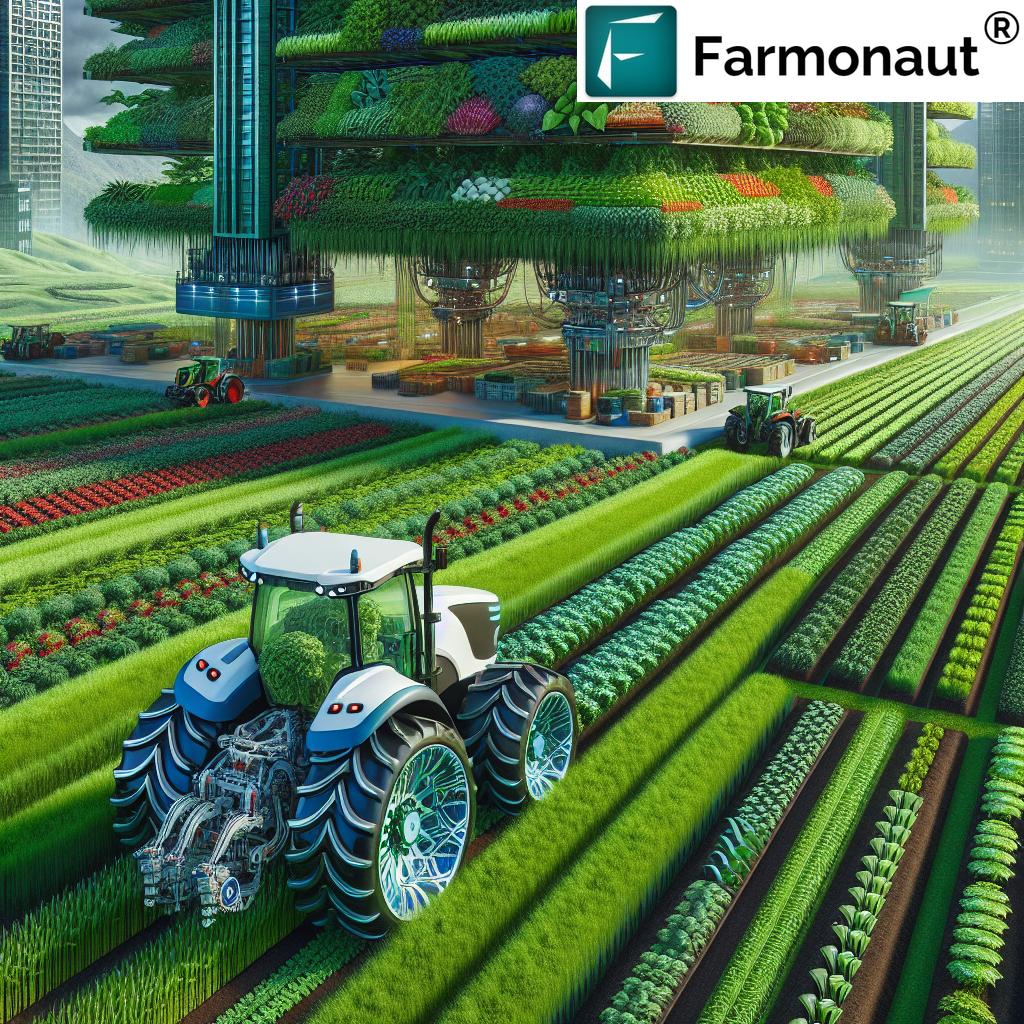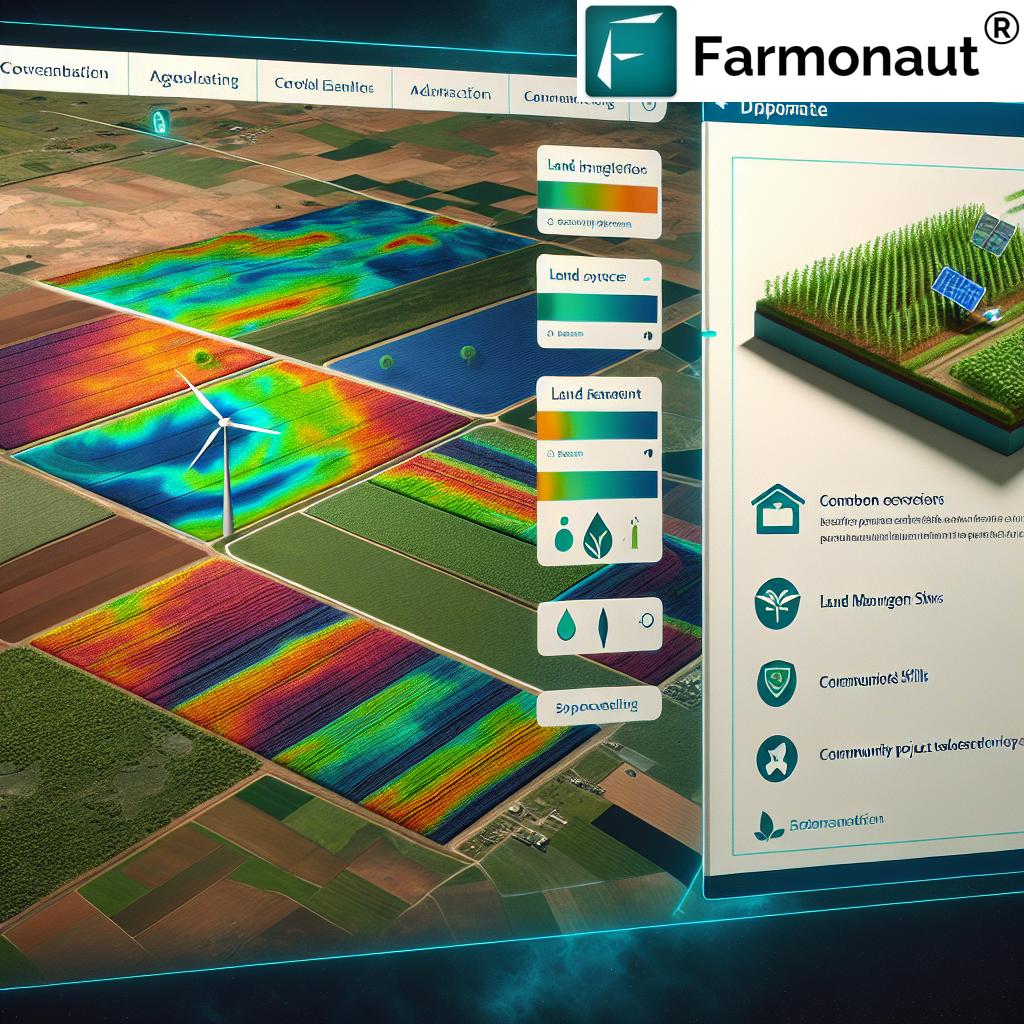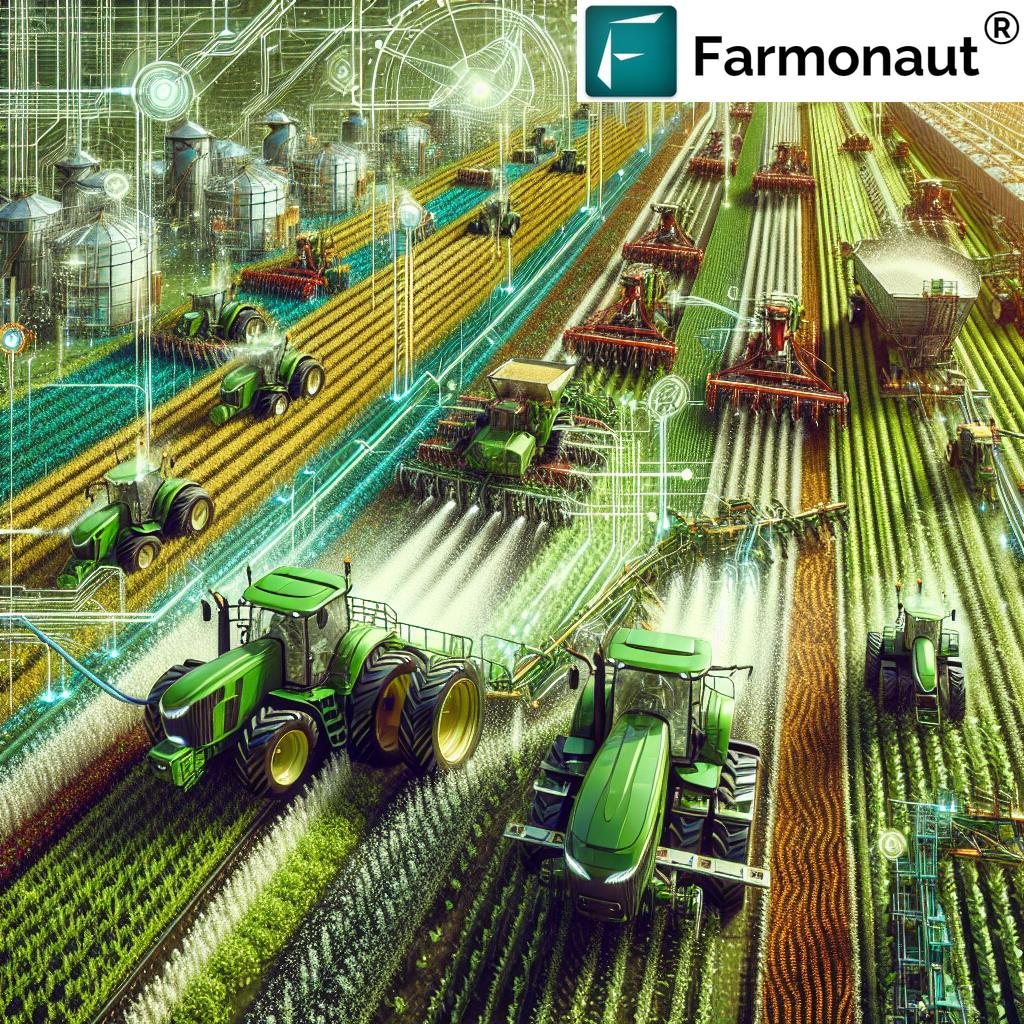Boosting Global Agricultural Productivity: Farmonaut’s Innovative Solutions for Sustainable Farming in a Changing Climate
“Global agricultural output growth has hit its lowest rate in 60 years, with total factor productivity slowing significantly.”
In an era where global food demand is rapidly increasing, the agricultural sector faces unprecedented challenges. We find ourselves at a critical juncture where traditional farming methods are struggling to keep pace with the world’s growing nutritional needs. As we delve into this complex issue, we’ll explore the current state of global agricultural productivity, the hurdles farmers face, and how innovative solutions from companies like Farmonaut are paving the way for a more sustainable and productive future in farming.
The Current State of Global Agricultural Productivity
The agricultural sector is experiencing a significant slowdown in productivity growth, a trend that has profound implications for global food security and economic stability. Total factor productivity (TFP) in agriculture, which measures the efficiency of all inputs in the production process, has reached its lowest point in decades. This decline is particularly alarming given the increasing pressure on our food systems to feed a growing world population while contending with climate change and resource constraints.
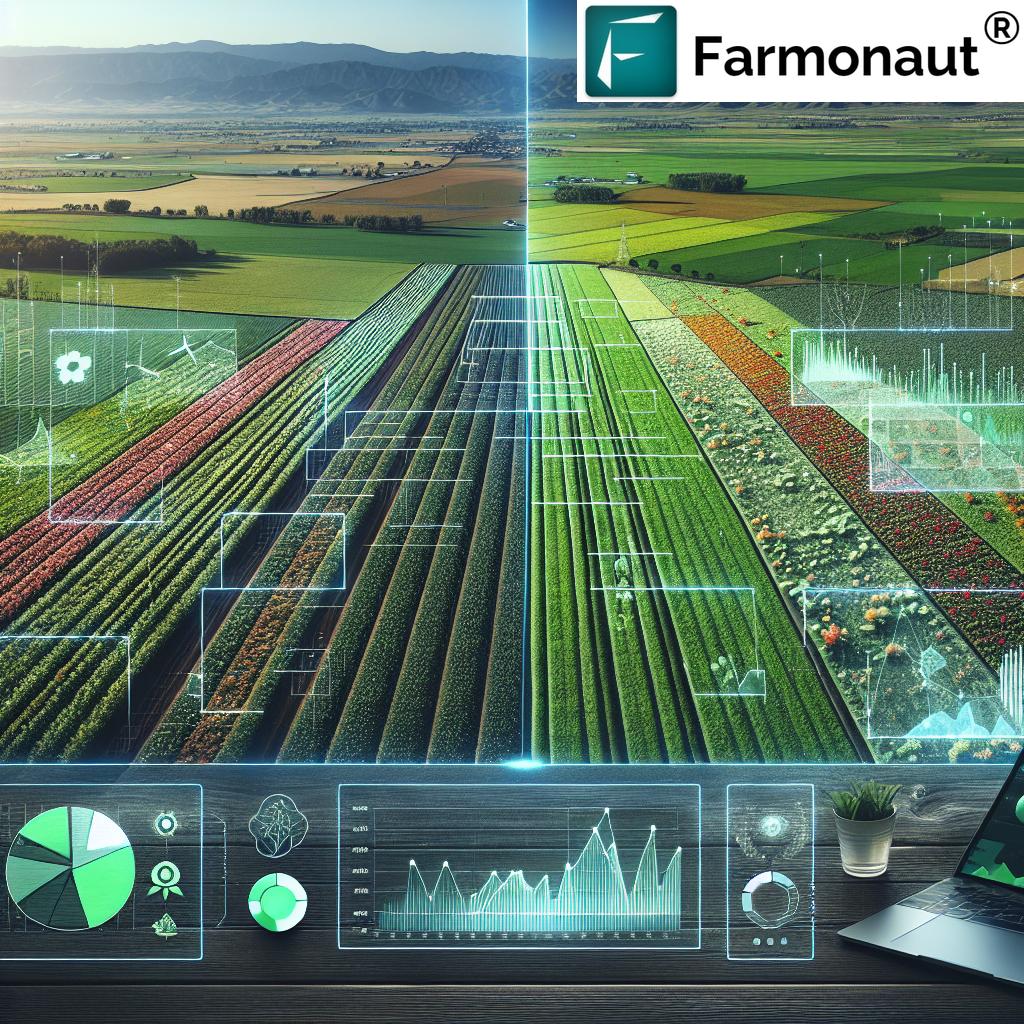
Key factors contributing to this slowdown include:
- Climate change impacts on crop yields
- Emerging pests and diseases
- Reduced investment in agricultural research and development
- Soil degradation and loss of arable land
- Water scarcity and inefficient irrigation practices
These challenges are not uniformly distributed across the globe. Developed countries generally experience faster agricultural productivity growth compared to developing nations, creating a disparity that further complicates global food security efforts.
The Role of Technology in Boosting Agricultural Productivity
In the face of these challenges, technology emerges as a beacon of hope. Precision agriculture techniques and agritech solutions offer innovative approaches to optimize crop yields and improve resource management. Companies like Farmonaut are at the forefront of this agricultural revolution, providing farmers with tools to make data-driven decisions and implement sustainable farming practices.
Farmonaut’s satellite-based farm management solutions are accessible via Android, iOS, web/browser App, and API, making precision agriculture affordable and accessible to farmers worldwide. By integrating cutting-edge technology with traditional farming practices, Farmonaut aims to address the productivity challenges facing global agriculture.
Farmonaut’s Innovative Solutions for Sustainable Farming
Farmonaut offers a comprehensive suite of tools designed to address the multifaceted challenges of modern agriculture:
- Satellite-Based Crop Health Monitoring: Utilizes multispectral satellite images to provide insights into vegetation health, soil moisture levels, and other critical metrics.
- Jeevn AI Advisory System: An AI-driven tool that delivers real-time insights, weather forecasts, and expert crop management strategies.
- Blockchain-Based Product Traceability: Ensures transparency and security in agricultural supply chains.
- Fleet and Resource Management: Optimizes vehicle usage and improves overall management of agricultural machinery.
- Carbon Footprinting: Helps agribusinesses monitor and reduce their environmental impact.
These technologies work in concert to address the key challenges facing global agriculture, from climate change adaptation to resource optimization.
Addressing Climate Change Impact on Agriculture
Climate change poses one of the most significant threats to global agricultural productivity. Rising temperatures, changing precipitation patterns, and extreme weather events are already impacting crop yields and agricultural efficiency worldwide. Farmonaut’s solutions are specifically designed to help farmers adapt to these changing conditions:
- Real-time monitoring allows for quick response to weather-related stresses
- AI-powered advisories provide climate-smart farming recommendations
- Precision agriculture techniques optimize resource use, reducing environmental impact
By leveraging these technologies, farmers can make informed decisions that mitigate the effects of climate change on their crops and improve overall resilience.
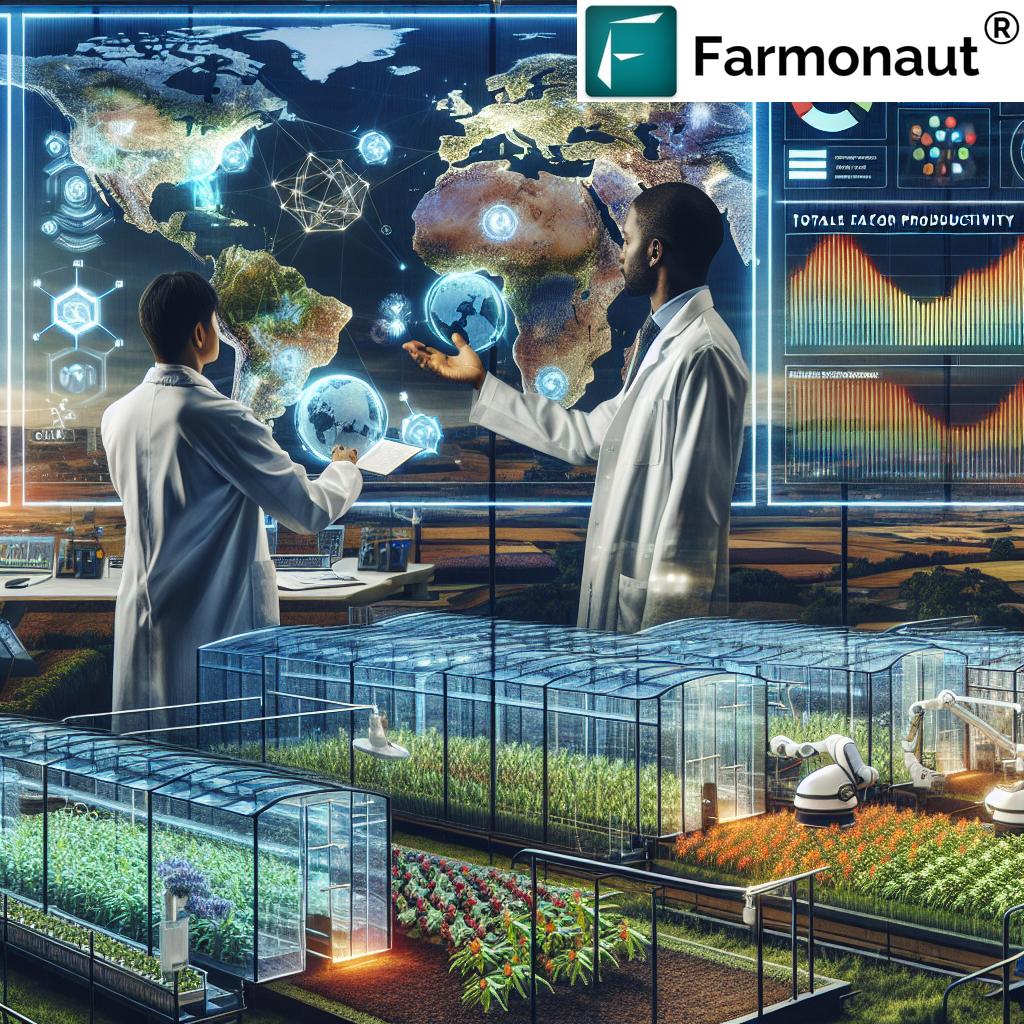
Optimizing Crop Yields Through Precision Agriculture
Crop yield optimization is crucial for meeting global food demand. Farmonaut’s precision agriculture techniques offer farmers the tools to maximize their yields while minimizing resource waste:
- NDVI (Normalized Difference Vegetation Index) analysis for accurate crop health assessment
- Soil moisture monitoring to optimize irrigation schedules
- Targeted fertilizer and pesticide application based on real-time crop needs
These techniques not only improve yields but also contribute to more sustainable farming practices by reducing the overuse of water, fertilizers, and pesticides.
“Developed countries experience faster agricultural productivity growth compared to developing nations, impacting global food security.”
Bridging the Productivity Gap Between Developed and Developing Countries
The disparity in agricultural productivity growth between developed and developing countries presents a significant challenge to global food security. Farmonaut’s affordable and accessible solutions are particularly valuable in addressing this gap:
- Low-cost satellite monitoring makes precision agriculture accessible to smallholder farmers
- Mobile app interface ensures usability even in areas with limited technological infrastructure
- AI-powered advisories provide expert-level insights to farmers with limited access to agricultural education
By democratizing access to advanced agricultural technologies, Farmonaut is helping to level the playing field and boost productivity in developing regions.
Sustainable Farming Practices for Long-term Productivity
Sustainable farming practices are essential for maintaining long-term agricultural productivity. Farmonaut’s solutions promote sustainability in several ways:
- Efficient resource management reduces waste and environmental impact
- Carbon footprint tracking helps farmers make environmentally conscious decisions
- Precision agriculture techniques minimize soil degradation and preserve soil health
These practices not only benefit the environment but also ensure the long-term viability of farming operations.
The Future of Agriculture: Trends and Innovations
As we look to the future of agriculture, several trends and innovations are shaping the industry:
- Increased adoption of AI and machine learning in farm management
- Integration of IoT devices for real-time data collection
- Development of climate-resilient crop varieties
- Expansion of vertical farming and urban agriculture
- Growing emphasis on regenerative agriculture practices
Farmonaut is at the forefront of these trends, continuously evolving its platform to incorporate the latest agricultural technology innovations.
Global Food Production Trends and Their Implications
Understanding global food production trends is crucial for addressing future challenges in agriculture. Current trends include:
- Shift towards plant-based diets in developed countries
- Increasing demand for animal products in developing economies
- Growing interest in locally sourced and organic produce
- Rise of alternative protein sources, such as lab-grown meat
These trends have significant implications for agricultural resource management and production strategies. Farmonaut’s data-driven approach helps farmers adapt to changing market demands and optimize their production accordingly.
The Role of Research and Innovation in Agricultural Productivity Growth
Research and innovation play a crucial role in driving agricultural productivity growth. However, recent years have seen a decline in funding for agricultural research in many parts of the world. To address this challenge:
- Increased public and private investment in agricultural R&D is needed
- Collaboration between research institutions and agritech companies like Farmonaut can accelerate innovation
- Focus on developing technologies that are accessible and applicable to a wide range of farming contexts
By fostering a culture of innovation and research, we can continue to develop solutions that address the complex challenges facing global agriculture.
Global Agricultural Productivity Trends and Challenges
| Region | TFP Growth Rate | Key Challenges | Impact on Crop Yields | Farmonaut’s Solutions | Potential Productivity Improvement |
|---|---|---|---|---|---|
| Developed Countries | 1.5-2% | Climate change, Reduced research funding | -5 to 15% | Precision agriculture, AI advisories | 10-20% |
| Developing Countries | 0.5-1% | Emerging pests, Resource constraints | -10 to 25% | Affordable satellite monitoring, Mobile app | 15-30% |
| Global Average | 1-1.5% | Climate change, Soil degradation | -7 to 20% | Sustainable farming practices, Resource management | 12-25% |
Empowering Farmers with Farmonaut’s Solutions
Farmonaut’s comprehensive suite of tools empowers farmers to make informed decisions and optimize their operations. Here’s how you can access these innovative solutions:
API Access: For developers looking to integrate Farmonaut’s powerful tools into their own applications, check out our API and API Developer Docs.
Farmonaut Subscriptions
Conclusion: A Sustainable Future for Global Agriculture
As we face the challenges of boosting global agricultural productivity in a changing climate, innovative solutions like those offered by Farmonaut are crucial. By leveraging advanced technologies such as satellite imagery, AI, and blockchain, we can optimize crop yields, manage resources more efficiently, and promote sustainable farming practices.
The path to a food-secure future requires a concerted effort from farmers, researchers, policymakers, and technology providers. By embracing precision agriculture techniques and agritech solutions, we can work towards closing the productivity gap between developed and developing countries, adapting to climate change, and ensuring a sustainable food supply for generations to come.
As we continue to innovate and adapt, the future of agriculture looks promising. With tools like Farmonaut at our disposal, we’re better equipped than ever to meet the challenges of feeding a growing world population while preserving our planet’s precious resources.
FAQ Section
Q: What is total factor productivity (TFP) in agriculture?
A: Total factor productivity (TFP) in agriculture measures the efficiency of all inputs in the production process, including land, labor, capital, and materials. It’s a key indicator of agricultural productivity growth.
Q: How does climate change impact agricultural productivity?
A: Climate change affects agricultural productivity through rising temperatures, changing precipitation patterns, and increased frequency of extreme weather events. These factors can lead to reduced crop yields, shifts in growing seasons, and increased pest and disease pressure.
Q: What are precision agriculture techniques?
A: Precision agriculture techniques involve using technology to optimize crop production. This includes satellite imaging, GPS-guided machinery, soil sensors, and data analytics to make targeted decisions about planting, fertilizing, irrigating, and harvesting crops.
Q: How does Farmonaut help farmers improve their productivity?
A: Farmonaut provides farmers with satellite-based crop health monitoring, AI-powered advisory systems, and resource management tools. These solutions help farmers make data-driven decisions, optimize resource use, and adapt to changing environmental conditions.
Q: What is the importance of sustainable farming practices?
A: Sustainable farming practices are crucial for maintaining long-term agricultural productivity, preserving soil health, reducing environmental impact, and ensuring food security for future generations. They help balance the need for increased food production with environmental conservation.




